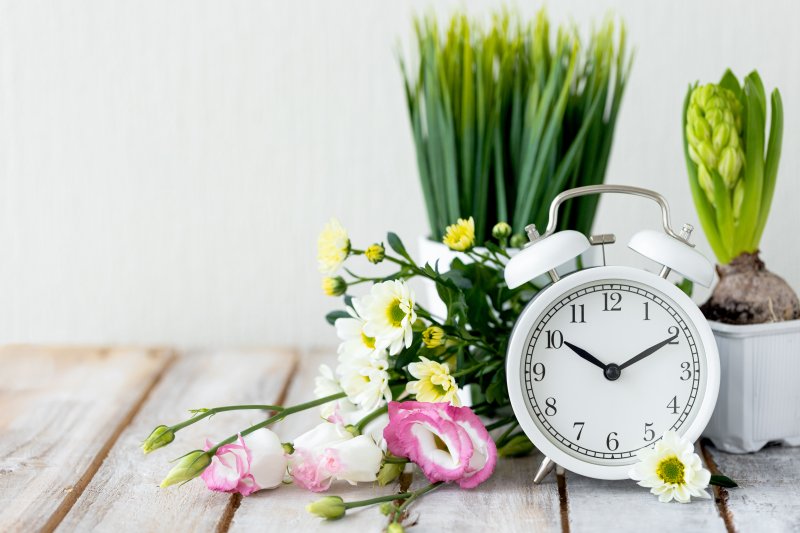
Daylight Saving Time (DST) impacts the sleep routines of many Americans each spring, but how would our sleep cycles be impacted if we didn’t spring forward every year?
Recently, the U.S. Senate passed legislation to abolish DST, and scientists think it could change the way our bodies adjust to light, improving our overall sleep health.
Impacts of Daylight Saving Time
Losing an hour of sleep each spring majorly impacts the way we operate in our daily lives, causing increased health and safety risks and overall decreased alertness.
This sleep debt doesn’t go away after only one night. Often, it takes more than a week to adjust to the new time, and studies suggest that this could lead to health issues, including an increased risk of heart attack and stroke, and injuries in the workplace or on the road. In fact, first responders see an increase in calls after DST as an effect of more drowsy people operating vehicles.
The Three Clocks
Our bodies have three different clocks that help us keep track of the day:
- The sun clock is based on the positioning of the sun throughout the day.
- The body clock is based on how our brain and body work together to optimize biological activity throughout the day. This controls the hormones and internal processes that give you the energy to wake up and help you wind down when it’s time to go to sleep, among many other functions.
- The social clock is what we see on our phone screens and watches.
In most cases, these clocks work in conjunction with one another and sync with our circadian rhythm. Our exposure to natural light during the day keeps our body clock synced with the surrounding environment, allowing for better sleep health.
Eliminating DST would increase our exposure to natural light from March to November, following the natural course of the seasons. In addition, our biological clocks would be working in the right time zone, making it easier to fall asleep and wake up on a more consistent schedule.
Health Rewards of Eliminating DST
There are many health rewards that come with establishing a healthy circadian rhythm, including lowered risk of diabetes, depression, cardiovascular disease, and other medical conditions.
Many of these health issues can be tied back to obstructive sleep apnea (OSA). OSA is a sleep disorder that causes breathing to stop briefly and repeatedly while sleeping. Additional symptoms include excessive snoring, headaches in the morning, and more. By decreasing the risk of medical issues such as diabetes and cardiovascular disease, the elimination of DST may impact the severity of symptoms in sleep apnea patients.
Tips for Adjusting to DST
Though the abolishment of DST is a possibility, it is not yet official. To help make this transition a little easier when DST rolls around again, it can be helpful to adjust your bedtime and wake up time ahead an hour in the week leading up to the time change. Using 15-minute increments, you can transition slowly so that your body is ready when the clocks jump forward.
Some people choose to change their clocks early, perhaps on Friday after work, so that they are prepared on Monday. This adjustment can help people avoid being accidentally late once DST strikes.
When It’s Time to See a Doctor
Of course, even if DST is abolished, this won’t cure those who are currently experiencing OSA. If sleep apnea symptoms are feeling persistent, and changes to your sleep habits aren’t helping, it may be time to seek help from a doctor.
If you live in the Atlanta area, Dr. Jeff Rodgers can help treat sleep apnea. Using a small oral device that’s worn to bed makes it easier to breathe and get the quality sleep you deserve.
Request an appointment at Sleep Better Georgia today to learn more about oral appliance therapy.
